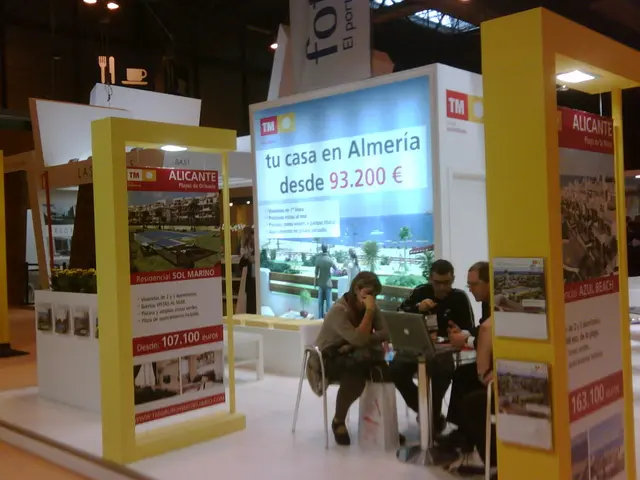EU Presidency: Poland Steps Up as a Beacon of Unity
Resting hope resides in Poland
The growing trend of national governments obstructing EU agreements on joint positions is becoming increasingly common.
By Jenny Jones
Until recently, Hungary's government under Viktor Orbán held the EU presidency, which was often criticized as the "worst in EU history"[1]. Green MEP Daniel Freund cited a paltry eight legislative procedures accomplished under Hungary's term, contrasting it with the typical five times as many[1]. However, this criticism is misleading, as the low number of dossiers negotiated was more due to the reorganization of the newly elected EU Parliament and crises in Paris and Berlin, rather than the ineptitude of the EU presidency.
Nevertheless, Freund makes a valid point, not because of the low completion of EU directives - a questionable criterion given the growing skepticism towards regulatory overload[1]. Instead, it's due to Orbán's audacity in seeking personal gain through embarrassing displays in Beijing, Moscow, and Mar-a-Lago, at the expense of EU unity. Thus, it's a relief that Hungary's tumultuous EU presidency has now come to an end. In times of geopolitical crises, trade tensions, and acute threats to shared values, an EU presidency should primarily focus on unifying the EU internally and strengthening it externally.
Now that the Council's calendar has seen the handover of the presidency from Hungary to Poland, it's fortunate since Poland's Prime Minister Donald Tusk is seen as a European beacon of hope[1]. Known for his talent as a European mediator during his tenure as President of the European Council, and with Poland's government having committed to key issues ahead of the EU presidency - such as supporting Ukraine and strengthening EU resilience - the motto for the next six months is fitting: "Security, Europe!"
While EU diplomats caution that Poland's presidential elections in the spring may limit Tusk's room for maneuver in EU politics, the EU's hopes still rest heavily on Poland, as there are few other options. The Franco-German tandem is on hiatus, and it remains unclear how far Italy's commitment to the EU's common interests truly extends[1].
For years, the focus of banks, stock exchanges, investors, and funds on what happens in Brussels was solely on details of financial market regulation. Unfortunately, this has fundamentally changed. Today, wars, energy shortages, commodity dependencies, or trade barriers pose higher risks to the banking industry than capital buffers or reporting obligations[1]. The Polish government, as the newly started EU Council presidency, plays a crucial role in lowering these risks by hopefully returning the everyday controversies around Mifid, CSRD, and the like to the top of the agendas of summits and ministerial meetings.
To add, Poland has a reputation for assertive EU diplomacy. Under Donald Tusk's government, Poland's presidency appears to prioritize EU unity and institutional collaboration, contrasting with Hungary's controversial tenure[1]. Informal meetings of culture ministers and sectoral parliamentary committees addressing energy, agriculture, and digital euro developments are scheduled for April 2025[2], though these reflect broader EU processes rather than presidency-specific initiatives. For formal priorities, direct monitoring of presidency announcements (e.g., via parleu2025.pl) would be necessary[3].
Footnotes
- Poland's ambitions for the EU Presidency
- EU Council presidency agenda
- Poland's EU Council presidency website
- Even though Hungary's term as the EU presidency was criticized as the "worst in EU history," the low number of dossiers handled during their tenure was more due to reorganization of the newly elected EU Parliament and crises in Paris and Berlin, not incompetence.
- Now that Poland has taken over the EU presidency from Hungary, it is a relief since Prime Minister Donald Tusk is seen as a European beacon of hope.
- As the newly started EU Council presidency, Poland plays a crucial role in addressing geopolitical crises, trade tensions, and acute threats to shared values by focusing on unifying the EU internally and strengthening it externally.
- Informal meetings of culture ministers and sectoral parliamentary committees addressing energy, agriculture, and digital euro developments are scheduled for April 2025, as part of Poland's EU Council presidency, which prioritizes EU unity and institutional collaboration.








